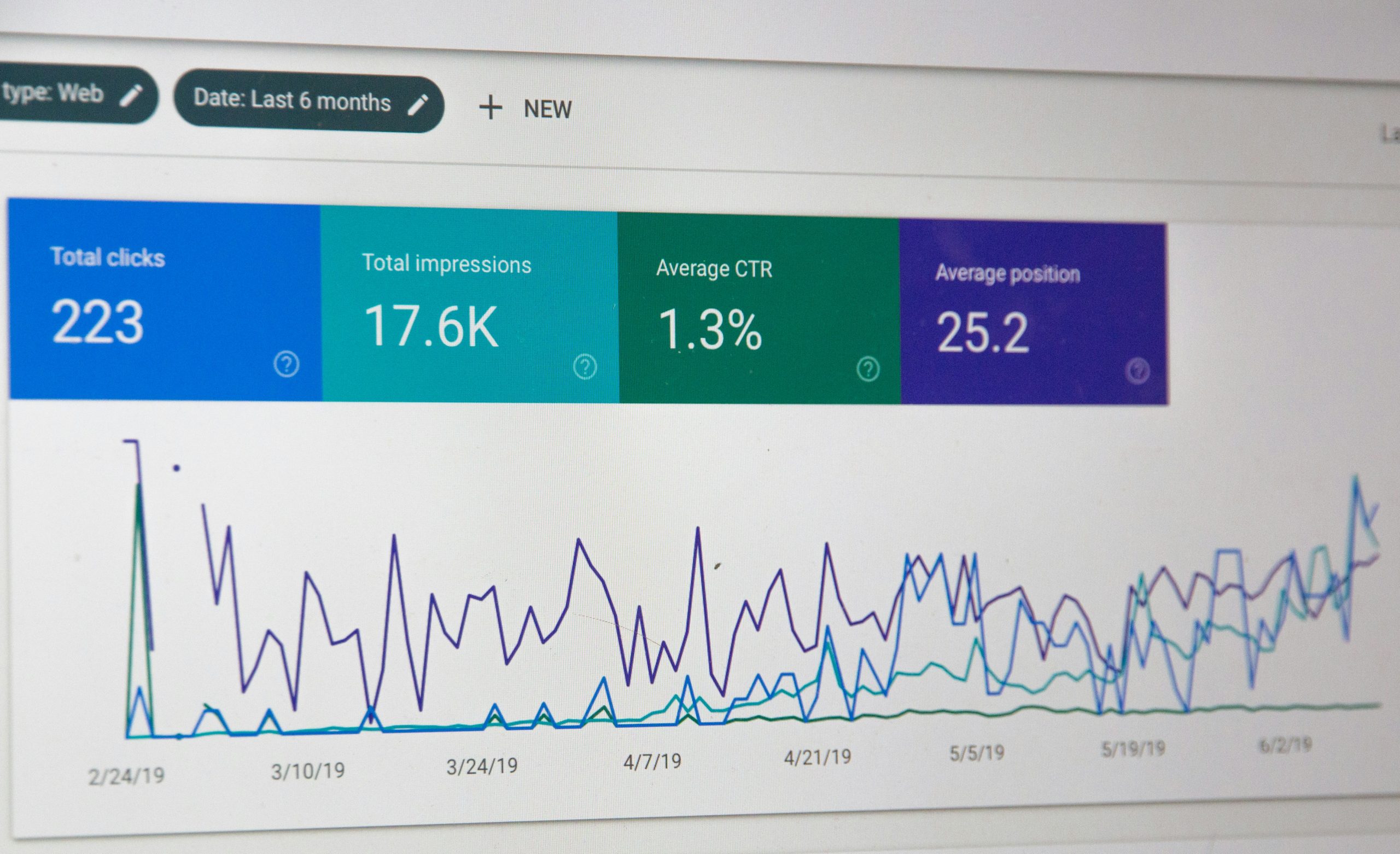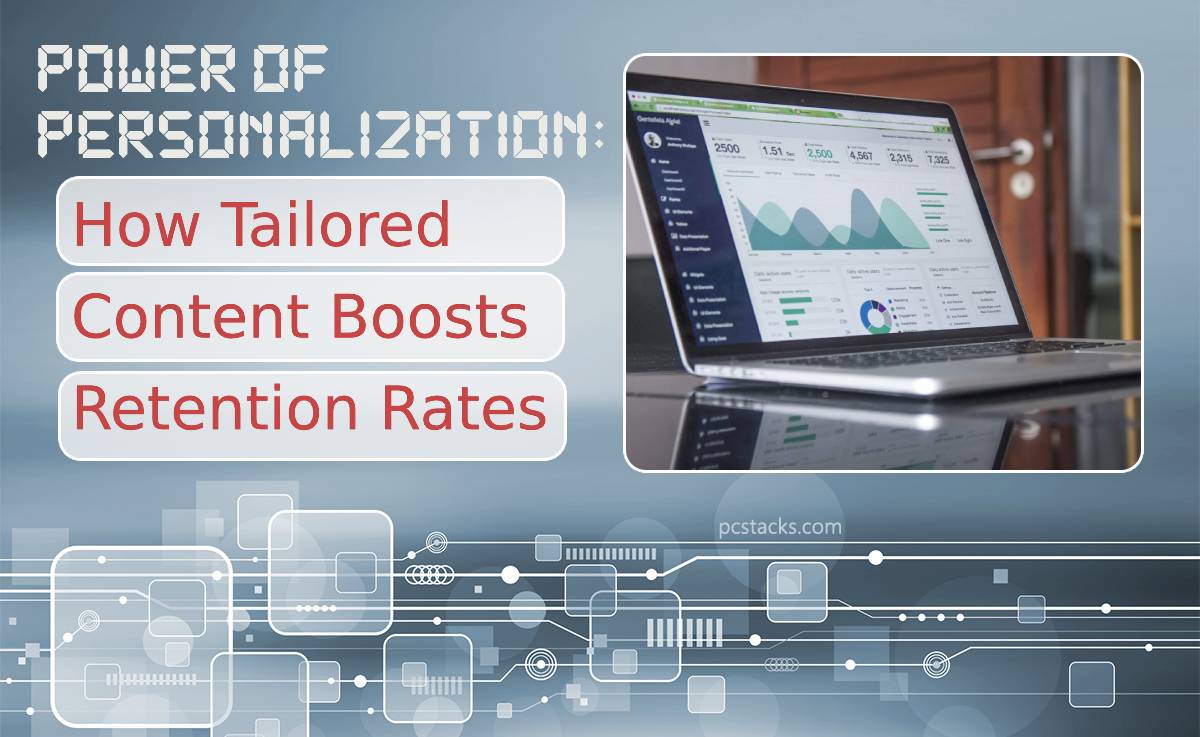In a world inundated with information, the quest for relevance has never been more critical. Imagine stepping into your favorite café, where the barista not only remembers your name but also knows your go-to order by heart. This personalized touch transforms a simple visit into a memorable experience—one that keeps you coming back for more. Similarly, in the digital landscape, personalization is revolutionizing how businesses engage with customers, creating connections that foster loyalty and boost retention rates.
As brands strive to stand out amid the noise of endless content and competing messages, tailoring experiences to individual preferences has emerged as a powerful strategy. From curated recommendations on streaming platforms to customized email campaigns that resonate with specific interests, personalized content captivates audiences like never before. Discover how harnessing the power of personalization can not only enhance user satisfaction but also drive long-term engagement and retention in an increasingly crowded marketplace. Join us as we explore the transformative impact of tailored content and uncover actionable insights to elevate your brand’s connection with its audience.
Table of Contents
Understanding User Preferences and Behaviors
To truly harness the power of personalization, one must delve deeply into understanding user preferences and behaviors. This involves analyzing data not just superficially but through the lens of human psychology—recognizing that behind every click or scroll is a unique narrative shaped by individual experiences and motivations. By employing advanced analytics and machine learning techniques, companies can identify patterns in user interactions that reveal what engages them most effectively, allowing them to craft experiences that resonate on a personal level.
Moreover, it’s essential to listen actively to users through direct feedback channels. Surveys and interactive features can uncover unspoken desires, helping brands pivot their strategies based on real-time insights. Additionally, segmentation—grouping users with similar habits or preferences—can enhance this approach by ensuring content delivery remains relevant to each subset’s specific interests. As businesses evolve their personalization efforts from generic outreach to finely-tuned messaging based on detailed behavior analysis, they don’t just see increased retention; they foster genuine connections that turn fleeting visitors into loyal advocates.

Types of Personalized Content Strategies
One powerful personalized content strategy is dynamic content creation, where websites adapt in real-time to user interactions and preferences. This approach tailors everything from product recommendations to blog articles based on a user’s browsing history or demographic information. For instance, an e-commerce platform might display different landing pages for returning customers versus new visitors, significantly enhancing engagement by presenting relevant offers that resonate with individual interests.
Another innovative method is the use of segmentation-driven email campaigns, which leverage data analytics to send targeted newsletters that speak directly to specific audience segments. By analyzing customer behavior and past purchases, brands can curate email content that includes tailored promotions or educational resources aimed at distinct groups—like loyalty program members receiving early access to sales or new subscribers being introduced to popular products in their favorite categories. This level of personalization not only increases click-through rates but fosters a stronger emotional connection between the brand and the consumer, ultimately driving retention as users feel seen and understood amidst the digital noise.
Impact of Personalization on Engagement Levels
Personalization transforms the digital landscape by creating a more intimate connection between brands and consumers. When users encounter tailored content that speaks directly to their interests or needs, their engagement levels soar. Research indicates that personalized experiences can boost click-through rates by up to 202%, illustrating how relevant messaging captivates audiences and encourages them to interact further with your content. This isn’t just about addressing individuals by name; it’s about leveraging data insights to craft compelling narratives and recommend products or services that resonate deeply.
Beyond merely increasing click-throughs, personalization fosters a sense of belonging and loyalty among users. When customers feel understood, they are more likely to return—not just for the products but for the overall experience. By utilizing behavioral data and feedback loops, brands can anticipate user preferences and continuously refine their offerings. As a result, engagement deepens not only through better metrics but also through enriched relationships; consumers become advocates who share their personalized experiences in organic word-of-mouth marketing, amplifying brand advocacy in an era where authenticity reigns supreme.

Case Studies: Success Stories in Personalization
One striking success story in the realm of personalization comes from Netflix, which has mastered the art of tailored recommendations. By utilizing sophisticated algorithms that analyze viewing habits, Netflix not only suggests shows and movies but also creates personalized artwork for each viewer’s homepage. This subtle shift in presentation captures individual tastes and cultivates a deeper emotional connection with the content, leading to longer watch times and increased subscriber retention. Their data-driven approach exemplifies how understanding user preferences can transform engagement into loyalty.
In the retail sector, Sephora has redefined customer experience through its digital initiatives such as the Virtual Artist feature. This tool uses augmented reality to allow customers to try on makeup virtually before making a purchase. By employing AI to recommend products based on previous purchases or search behaviors, Sephora deepens its relationship with customers by fostering an interactive shopping experience that feels uniquely customized. As a result, this strategy not only enhances customer satisfaction but significantly boosts repeat purchases and brand advocacy—proving that personal touches can lead to powerful outcomes in building lasting consumer relationships.
Tools and Technologies for Tailored Content
In the realm of tailored content, leveraging cutting-edge tools and technologies is crucial for marketers aiming to enhance user engagement. Advanced data analytics platforms, such as Google Analytics 4 and Mixpanel, allow businesses to gather deep insights into consumer behavior patterns. By identifying trends and preferences through these tools, companies can create hyper-personalized experiences that resonate with individual users. Machine learning algorithms further amplify this capability by predicting future preferences based on past interactions, streamlining the content delivery process.
Additionally, customer relationship management (CRM) systems like HubSpot or Salesforce are not just about maintaining contact information; they function as powerful engines for segmentation and targeting. These platforms enable businesses to develop specific personas based on rich datasets gathered across multiple touchpoints. By harnessing AI-driven chatbots and personalized email marketing tools that adapt to user interactions in real-time, brands can foster ongoing conversations—transforming one-time visitors into loyal advocates. Ultimately, investment in these transformative technologies paves the way for building deeper connections with audiences while significantly boosting retention rates.

Measuring the Effectiveness of Personalization Efforts
Measuring the effectiveness of personalization efforts goes beyond mere metrics; it’s about understanding the emotional resonance that tailored content can create. Traditional analytics such as open rates and click-through rates provide a snapshot, but they lack depth in deciphering user engagement. To truly grasp the impact of personalized experiences, brands should consider implementing qualitative methods—such as user interviews and feedback loops—that delve into how individuals feel about their interactions. This not only enriches data interpretation but also fosters a deeper connection between consumers and brands.
Furthermore, advancements in AI-driven analytics have opened new avenues for tracking personalization effectiveness in real time. By leveraging machine learning algorithms, companies can analyze vast amounts of customer interaction data to uncover patterns and predict future behaviors with remarkable accuracy. A/B testing various personalized approaches across segments can yield insights on what works best, creating an agile framework for continuous improvement. Ultimately, businesses that embrace both quantitative and qualitative measurements will better understand their audience’s evolving preferences, leading to more meaningful engagements that significantly enhance retention rates over time.
Conclusion: Embracing Personalization for Better Retention
In an era where consumers are inundated with information, embracing personalization is no longer just a strategic option; it’s a necessary evolution for brands aiming to foster deeper connections and enhance retention rates. By leveraging data-driven insights, companies can tailor content that resonates with their audience’s preferences, desires, and behaviors. This thoughtful approach transforms a one-size-fits-all narrative into an engaging dialogue, making customers feel seen and valued. As they navigate personalized experiences—be it through customized recommendations or targeted messaging—they develop a sense of loyalty rooted in relevance.
Moreover, the impact of personalization extends beyond immediate engagement; it cultivates long-term relationships built on trust and satisfaction. When users consistently encounter content that meets their unique interests, they are more likely to return time after time. This not only boosts customer lifetime value but also encourages organic advocacy as delighted clients share their tailored experiences with friends and family. Ultimately, businesses that prioritize personalization aren’t merely enhancing retention—they’re creating vibrant communities around their brand where each individual feels like an integral part of the story.




